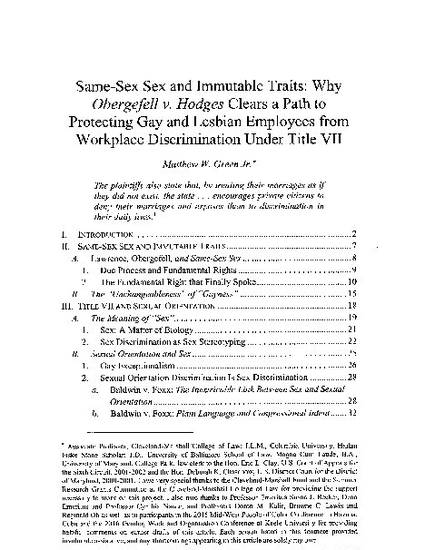
- LGBT,
- Obergefell v. Hodges,
- Title VII,
- Fourteenth Amendment,
- due process,
- sexual orientation,
- same-sex sex,
- gay civil rights,
- sex discrimination,
- employment discrimination,
- marriage equality,
- sex plus theory
This article is set forth in five parts. Part II is largely descriptive and focuses on two aspects of Obergefell: (1) the Court's clarification that adult, private, consensual, same-sex sexual intimacy is a fundamental right, protected by the U.S. Constitution's Fourteenth Amendment Due Process Clause and (2) the Court's recognition that leading mental health and medical groups consider sexual orientation to be immutable. Part III examines how courts and the EEOC have treated sexual orientation discrimination under Title VII and contains a normative discussion which argues—consistent with the position of other commentators, some courts, and the EEOC—that sexual orientation discrimination should be recognized as sex discrimination for purposes of Title VII. Part IV explores instances in which courts have permitted employers to discriminate because of sex as a matter of judicial interpretation of Title VII. One such instance involves the "sex plus" theory. Part V argues that under this line of sex plus authority, sexual orientation discrimination is not only sex discrimination, but consistent with Obergefell, it is the type of discrimination that Title VII forbids.
Available at: http://works.bepress.com/matthew_green/12/
